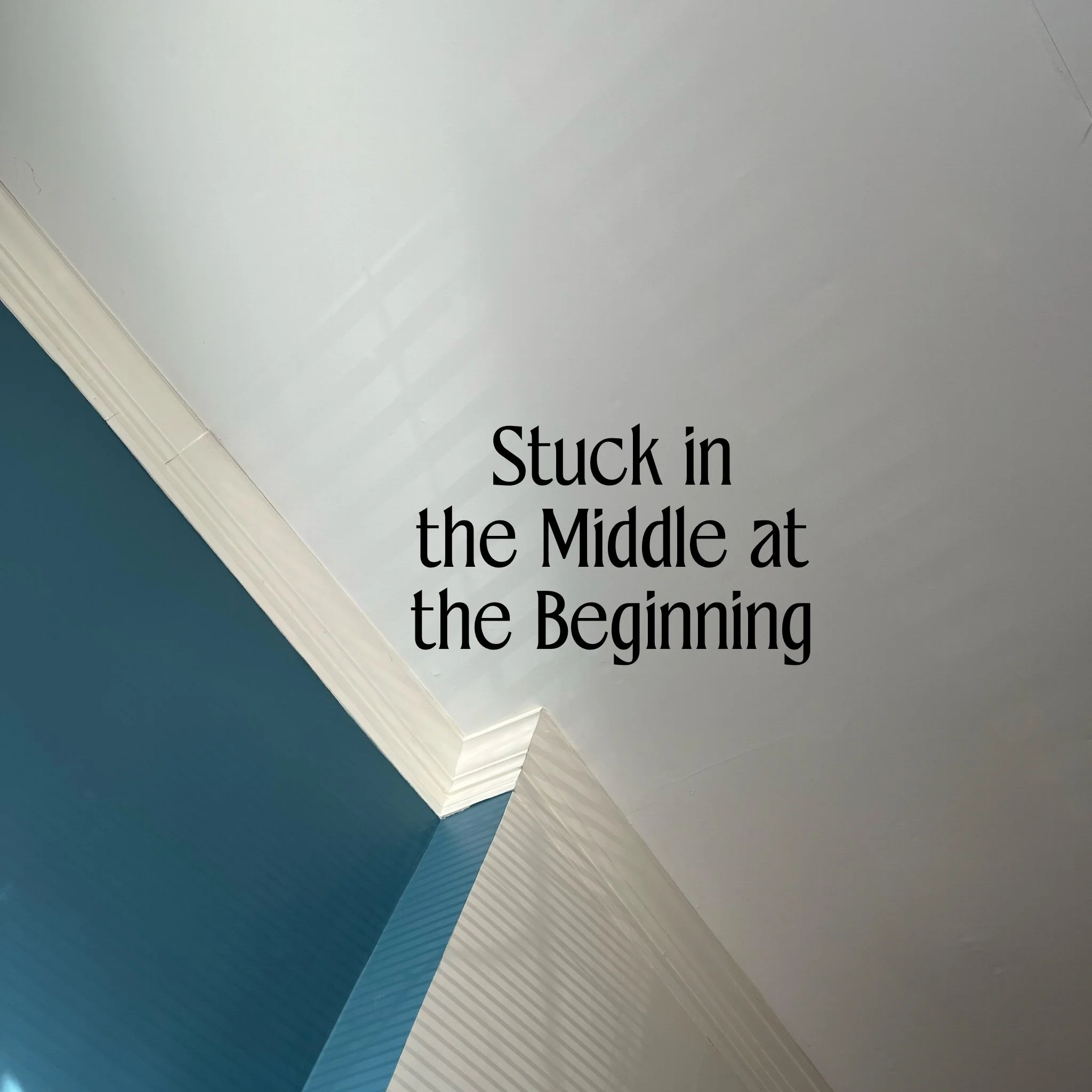7 Things Inside Out Taught and/or Reminded Me Concerning Faith
First thing's first: If you haven't seen Inside Out, go see it. Now. This post will be here when you get back. The film has been out for nearly two months, but you can still find it in theaters. Don't let the high concept plot--the adventures of the emotions that exist inside the mind of an eleven year old girl--deter you. It is funny, ridiculously imaginative, thought-provoking, and heartfelt. In other words, the movie is Pixar at its finest. There's also a good probability that if you're a human being in touch with your emotions then Inside Out will make you cry. If you're a parent, don't even fight it. Waterworks will be in abundance.
For me, one of the remarkable things about the movie is how it has impacted the way I view my emotions, my memories, and those around me. I find myself asking, and I have read about others who have done this, "Who is at the controls right now? Is it Joy? Sadness? Anger? Disgust? Fear?" Not only have I been gauging my actions through this filter, but those of others as well. For example, I'm fairly sure that Donald Trump's presidential campaign is running on pure Anger and Disgust.
As always, the film also made me consider matters centering around faith. And the stations at which my train of thought kept stopping were the Personality Islands. Let me see if I can explain.
(Spoilers lie ahead)
In the movie, all memories (represented by glowing orbs) are color coded by the dominant emotion related to that event. Those memories then either go to long-term memory or they eventually end up in Memory Dump. The most important memories are called Core Memories and they form the basis of the Personality Islands. These are basically the most important parts of our main character Riley and they define who she is. For her, the Personality Islands are Family, Friendship, Honesty, Goofball, and Hockey.
I began tinkering with the idea of Faith being one of these Personality Islands. I am not saying the structure of Inside Out is how faith works in a person, but I want to just use that as a framework to think about faith. With that in mind, here are seven things the film taught and/or reminded me.
1. Faith is rooted in emotion
Emotion can sometimes be a dirty word in the context of church. I worked at a youth camp for years. Typically on the last night, we would see teenagers become emotional and make decisions to become Christians or turn their life around. And I would always pray, "God, please don't let these decisions be based on an emotional high." I knew that if those faith steps were based solely on emotion that they would fall apart when the high wore off.
At the same time, emotion tethers us. Emotions are what tied Riley to her family, her friends, her love of hockey. Emotions are complicated and tricky, but they are also what makes us human. Our faith cannot be based purely on emotion. We need to know what we believe and why we believe it. Yet there has to be an emotional component to our faith. There have to be core memories in which we look back on our journey with joy, sadness, etc. That's why it is important to know the story of our relationship with God. Otherwise, our faith is cold. We cannot, nor should not try to keep emotions out of our faith.
2. Anger, Fear, and Disgust are important to faith
I feel like Inside Out educated me on these three emotions. Beforehand, I probably would have identified anger, fear, and disgust as bad emotions. They should be purged. Yet right out of the gate, Joy identifies that each member of this trio has an important role to play in our well-being. I read an interview with the film's director Pete Docter and he said just as much. We need anger, fear, and disgust in our lives. Fear keeps us safe. Anger is our response to unfairness.
When that clicked, I realized that we need those things in the church. I believe we fall into the trap of thinking that our faith should be just full of joy. Yet we need anger so that we will speak up when injustice happens to others. We need fear to keep us in check from doing things that would be harmful to us, others, or how others see our faith. We need disgust to protect us from things like Christian music that is shallow or crass politics disguised as faith.
3. Yet faith will begin to crumble if those three emotions run the show
The conflict on Inside Out is driven by an accident in which Joy, Sadness, and the Core Memory orbs are ejected out of Headquarters. Suddenly Anger, Fear, and Disgust are left to run the show. With solely those three at the wheel and Riley's emotional connection to who she is unmoored, her Personality Islands go dark. Eventually, the islands crumble and fall into the Memory Dump. Externally, the light goes out in Riley's eyes. Having difficulty adjusting to a cross country move, she fights with a friend from back home, quits hockey, and grows cold towards her parents.
Anger, fear, and disgust can be good. Yet if they grab control, then they can cause the colorful beauty of faith to go dark:
-Anger can turn itself into an "Us versus Them" Christianity where you lash out at whoever is too sinful or doesn't have the right theology or whoever is not compassionate enough or just isn't like you.
-Fear can blow up into someone who is so worried about what other people think about them that he or she becomes paralyzed. They cannot grow in their faith. They're afraid to say or do anything because they might be wrong. They choose the safety of legalism over the freedom God brings.
-Disgust can curdle into snobbery. If you think someone is beneath you, then they're not worth your time. Maybe the church is not cool enough or doesn't have robust enough theology or maybe it's a person who is not a Christian. You're not angry at them, but you look down on them. The light goes out.
4. Sadness and Joy are inextricably linked
Joy doesn't get the point of Sadness. Why is she even in Headquarters? Who wants to be sad? When Sadness gets ahold of one of Riley's perfectly joyful memories of Minnesota, the young girl begins to cry. Yet over the course of the film, we learn that Sadness has a great purpose. It often paves the way for our greatest joys. The memories that really and truly stick are the ones where Sadness and Joy meet. In the end, it is Sadness that saves the day. Riley's Personality Islands bloom again because of tears.
I have to be reminded of this and I have been writing about this a good deal lately. We have to be lost to be found. It is embedded in the Christian faith. God has this way of creating goodness out of the darkest places. The valleys of sadness are often the beginning of core memories that tie us most closely to our faith. That doesn't mean that the sadness will not hurt and we'll want out. But the joy will come some morning.
5. Even internally we are thoroughly connected to others
The majority of Inside Out takes place inside Riley's head. Externally, we see her interact with her family and go to school. All of that gives realistic stakes to the whimsical world inside her mind. Yet even when we are exclusively on the inside, it is obvious how attached Riley is to those around her. Her mom, dad, and friends populate nearly every memory. The emotions are always talking about Mom and Dad or some kid at school. In fact, when Riley becomes the most isolated is when her Personality Islands begin to fall apart.
We are connected to one another. And often those connections have a dramatic impact on how we view our faith. It is not something isolated that is just between us and God. It is shaded by interactions with many people throughout our lives. Community is vitally important to our spiritual growth and development. If we completely isolate ourselves from community, we may find our faith greatly impaired (special exemption for the desert mothers and fathers).
6. We evolve and our faith must too
Here's the thing that I realized after seeing Inside Out. The destruction of the Personality Islands, which is profoundly traumatic to watch, has to happen. Not necessarily under the difficult circumstances that Riley faced. But for Riley to continue to grow up, some things were going to have to be torn down to make room for new aspects of her personality. It doesn't mean that Honesty and Family would have fallen wholesale in the Memory Dump. But Riley would have changed. At the end, Riley's islands seem much more connected. She is more integrated as a person.
We grow up in our faith. What works for us at seven won't necessarily work for us at seventeen. What works at seventeen won't always work at twenty-seven or forty-seven. It doesn't mean what worked in the past was necessarily juvenile or was fake. We have just grown up. We move on. We're different people. Our faith evolves. Paul writes of no longer thinking or speaking as a child. Some things will fall away. Some new things will take their place. Some things will stay until the end. Change happens and, though it can be scary, we need not worry that the world is falling apart when it occurs.
7. As such, we need to keep making core memories and maintain an emotional connection to our faith
Riley tries to run away back to Minnesota yet changes her mind (or her mind changes her), gets the bus to stop, and returns home (thanks to Sadness). As her mom and dad embrace her, she cries, and feels at home. It creates a new Core Memory. It strengthens her bond to her family. Knowing she's at home emboldens her to make friends. She returns to the sport she loves. It's not a cure-all, but it's obvious that the new Core Memory is a big deal in who Riley is becoming.
We continually need Core Memories. We need to pursue God with all of our hearts and all of our emotions to remain tethered to our faith. As we grow, we cannot solely coast on memories from childhood or adolescence. It doesn't mean that those memories aren't important. But we need to continue to make memories. We need to continue to experience joy, sadness, anger, fear, disgust as we walk with God. We need to care, to feel. So that the lights of faith's Personality Island do not go dim, we need to stay engaged and emotionally connected with our God.









